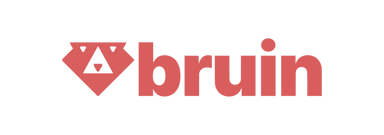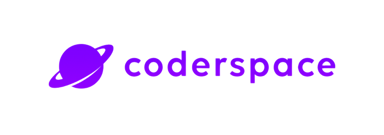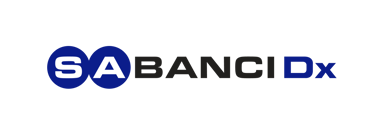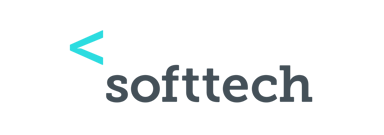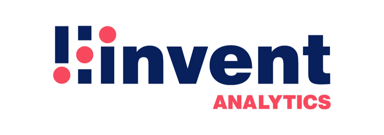Career Development
Career development is often misunderstood – it’s more than just climbing up the ladder. It’s a journey. Career development includes aspects from both professional and personal growth, seeking fulfillment on all aspects of your life. Achieving the ideal career is not easy and it will need your effort and time.
Even if it’s a hard journey, it’s possible to achieve your dream career. In this content, we discover the definition, an outline of steps you need to take, benefits and challenges of a career development journey and why it’s important. Tag along and let’s explore how you can develop your career journey. 🕵🏻♀️
What is Career Development?
Career development is a life-long process of proactively managing and trying to figure out your professional work life. It involves setting career goals, acquiring new skills, gaining experiences, and making decisions that align with your personal values, interests, and ambitions. It doesn’t end there though – professional and personal growth are important keys in career development. They are both crucial components to help you guide through your career journey.
Career development is not a linear journey: it’s dynamic. Your personal aspirations, desired industries, the skills you want to earn, and much more can change with time. Your adaptation skills will come in handy in such times, allowing you flexibility with your future goals. 🏅
Why is Career Development Important
Since it promotes long-term success, job satisfaction, and personal growth and many more, career development is crucial for both individuals and businesses. Whether it's moving up in a current role in a company, changing careers, or learning new skills, career development provides a clear route for people to reach their professional objectives and aspirations.
You can improve your skills and maintain your value in the job market. When people match their work with their own goals and values, it also helps you feel fulfilled and motivated with your work.
Establishing career development programs is essential for companies looking to develop a devoted and driven workforce. Employees are more likely to stay engaged and dedicated if they perceive a clear path for advancement within their organization. This reduces turnover and the related expenses of recruiting and onboarding new hires. Try to look for organizations that provide you with such development programs which will benefit both parties involved.
Additionally, putting an emphasis on professional development ensures that staff members are always learning and adjusting to changes in the industry, which helps businesses remain competitive in their relevant market.
In addition to increasing overall efficiency, this helps the company attract top talent by appearing as a desirable place to work. Keep that in mind while trying to figure out a career plan. Adapting to the ever-changing world of industries is not easy and if a company provides such advantages, it’s a plus.
Career growth is not only advantageous but also essential for anyone hoping to reach long-term success and fulfillment in their work in the quickly changing contemporary job market.
How to Develop Your Career: Career Development Steps
Conducting a Self-Assessment
You can first start with understanding yourself. A self-assessment will help you analyze your strengths, weaknesses, interests, values and skills which are keys to point you to the right direction through your career development.
Choosing the right career path is the most important thing when it comes to your overall happiness. To achieve that, a self-assessment will be the first step to help you. If you can’t understand or figure out what you want to do, you can take help from personality tests or skill assessment tests.
Set Your Goals
After you carefully assess your wishes and skills, you can now set determined career goals. Once you have acknowledged your strengths and weaknesses, you can set goals to develop your weak skillsets. Set SMART (Specific, Measurable, Achievable, Relevant, Time-bound), short term and long-term goals for yourself. Make sure to align your personal goals with your career goals, as they are both important in your career development journey. 📝
Try to set those goals realistically: achievable goals will help you keep your motivation alive, as it’s the fuel through your journey.
Develop Your Skills
Now that you have assessed and planned your next steps, you can start developing your skills. Whether you want to work on a skill you already possess or a new one you would like to require, developing your skillset is crucial. Once you have identified the specific skillsets you want to gain, start researching training programs, courses, or workshops.
Plan Your Career
You have the skills, you have the goals, you now know what you want and how to get there – now you can plan everything. Creating a career roadmap should be your next step. Identify the industries you can make use of your skillset, define the roles you would want to work as, and discover the job market.
You can benefit from mentorship and networking. Seek opportunities that will help you create connections in the industry, or mentorship programs where you can have a professional help you out while creating a roadmap for your career development journey. 👨🏻💻
Final Thoughts
Career development is an important journey that will pave the way for your personal and professional goals. It provides you a more structured outline of your future plans. By understanding what your objectives are and how to position them in your career development journey. In the ever-evolving landscape of the modern job market, a structured career progression will shed a light into your process. Investing into a career development journey will ensure positive results.
Want to learn more? Visit Hirex – your go-to guide on everything HR, recruitment & more.
Get a demo
- Quickly find top candidates with smart application management
- Improve team collaboration using built-in communication and workflows
- Offer a smooth candidate experience to strengthen your employer brand
- Count on 24/7 support for a hassle-free hiring process
- Quickly find top candidates with smart application management
- Improve team collaboration using built-in communication and workflows
- Offer a smooth candidate experience to strengthen your employer brand
- Count on 24/7 support for a hassle-free hiring process
"We truly felt the speed difference. Everything was smoother, and candidate feedback was much more positive. It made our jobs easier."

Trusted by 100+ teams
Get Informed,F.A.Q.
Revolutionize your hiring process with our transformative Applicant Tracking System (ATS.)
Suggested keywords
What is Cultural Fit?
Let's talk numbers - 89% of employers put cultural fit at the top of their hiring checklist. Pretty huge. But wait a second... what exactly does cultural fit mean in today's fast-moving workplace?The ...
Employee NPS Benchmarks
An Employee NPS benchmark is basically a way to see how your company’s employee satisfaction stacks up against others. It helps turn your eNPS score into something useful by giving it context. 📌You'r...
Salary Benchmarking
Salary benchmarking is basically figuring out if what you're paying your team makes sense compared to what others are offering for similar roles. It’s like checking the going rate before you buy somet...

